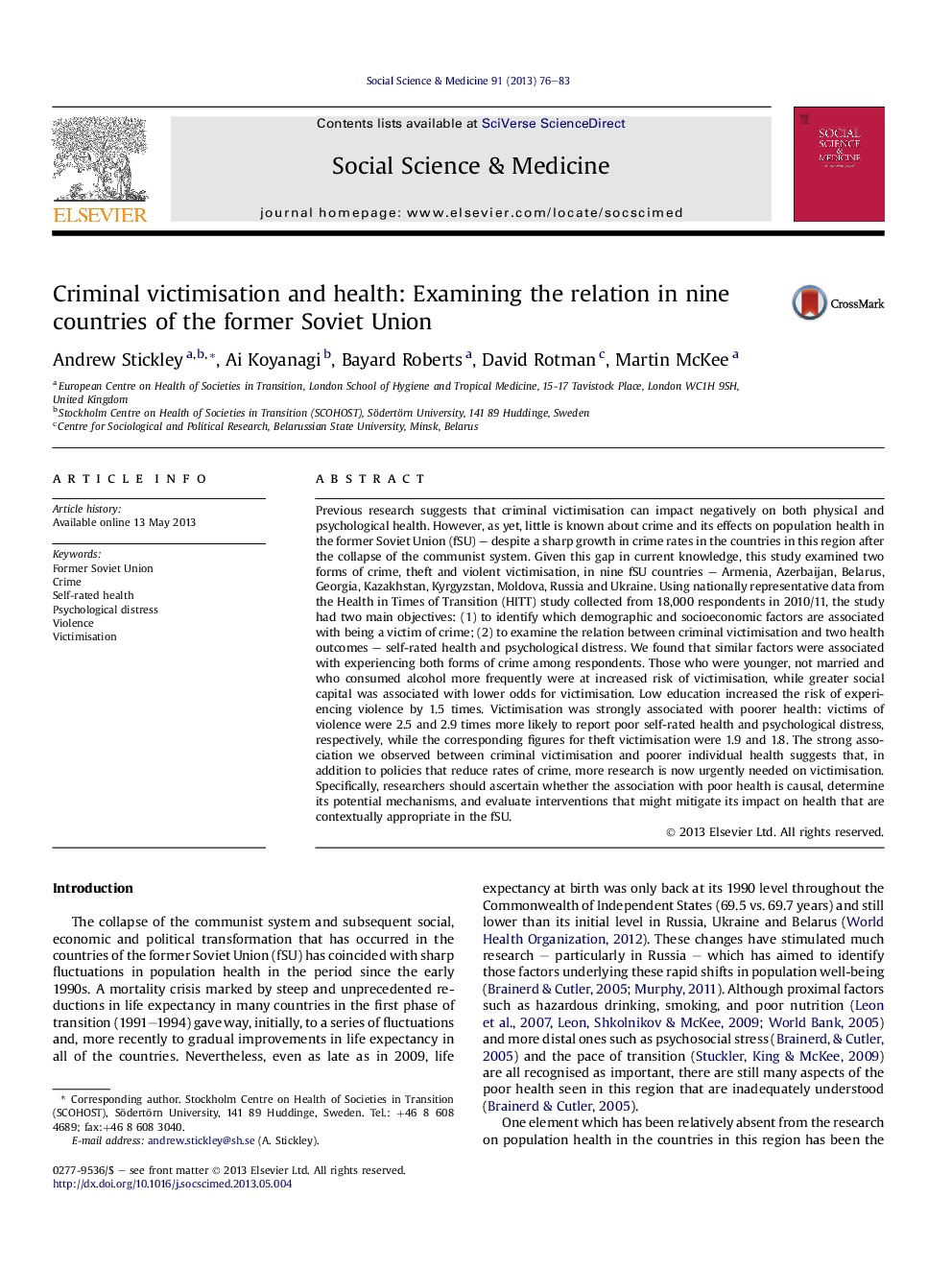| کد مقاله | کد نشریه | سال انتشار | مقاله انگلیسی | نسخه تمام متن |
|---|---|---|---|---|
| 7337127 | 1476077 | 2013 | 8 صفحه PDF | دانلود رایگان |
عنوان انگلیسی مقاله ISI
Criminal victimisation and health: Examining the relation in nine countries of the former Soviet Union
دانلود مقاله + سفارش ترجمه
دانلود مقاله ISI انگلیسی
رایگان برای ایرانیان
کلمات کلیدی
موضوعات مرتبط
علوم پزشکی و سلامت
پزشکی و دندانپزشکی
سیاست های بهداشت و سلامت عمومی
پیش نمایش صفحه اول مقاله

چکیده انگلیسی
Previous research suggests that criminal victimisation can impact negatively on both physical and psychological health. However, as yet, little is known about crime and its effects on population health in the former Soviet Union (fSU) - despite a sharp growth in crime rates in the countries in this region after the collapse of the communist system. Given this gap in current knowledge, this study examined two forms of crime, theft and violent victimisation, in nine fSU countries - Armenia, Azerbaijan, Belarus, Georgia, Kazakhstan, Kyrgyzstan, Moldova, Russia and Ukraine. Using nationally representative data from the Health in Times of Transition (HITT) study collected from 18,000 respondents in 2010/11, the study had two main objectives: (1) to identify which demographic and socioeconomic factors are associated with being a victim of crime; (2) to examine the relation between criminal victimisation and two health outcomes - self-rated health and psychological distress. We found that similar factors were associated with experiencing both forms of crime among respondents. Those who were younger, not married and who consumed alcohol more frequently were at increased risk of victimisation, while greater social capital was associated with lower odds for victimisation. Low education increased the risk of experiencing violence by 1.5 times. Victimisation was strongly associated with poorer health: victims of violence were 2.5 and 2.9 times more likely to report poor self-rated health and psychological distress, respectively, while the corresponding figures for theft victimisation were 1.9 and 1.8. The strong association we observed between criminal victimisation and poorer individual health suggests that, in addition to policies that reduce rates of crime, more research is now urgently needed on victimisation. Specifically, researchers should ascertain whether the association with poor health is causal, determine its potential mechanisms, and evaluate interventions that might mitigate its impact on health that are contextually appropriate in the fSU.
ناشر
Database: Elsevier - ScienceDirect (ساینس دایرکت)
Journal: Social Science & Medicine - Volume 91, August 2013, Pages 76-83
Journal: Social Science & Medicine - Volume 91, August 2013, Pages 76-83
نویسندگان
Andrew Stickley, Ai Koyanagi, Bayard Roberts, David Rotman, Martin McKee,